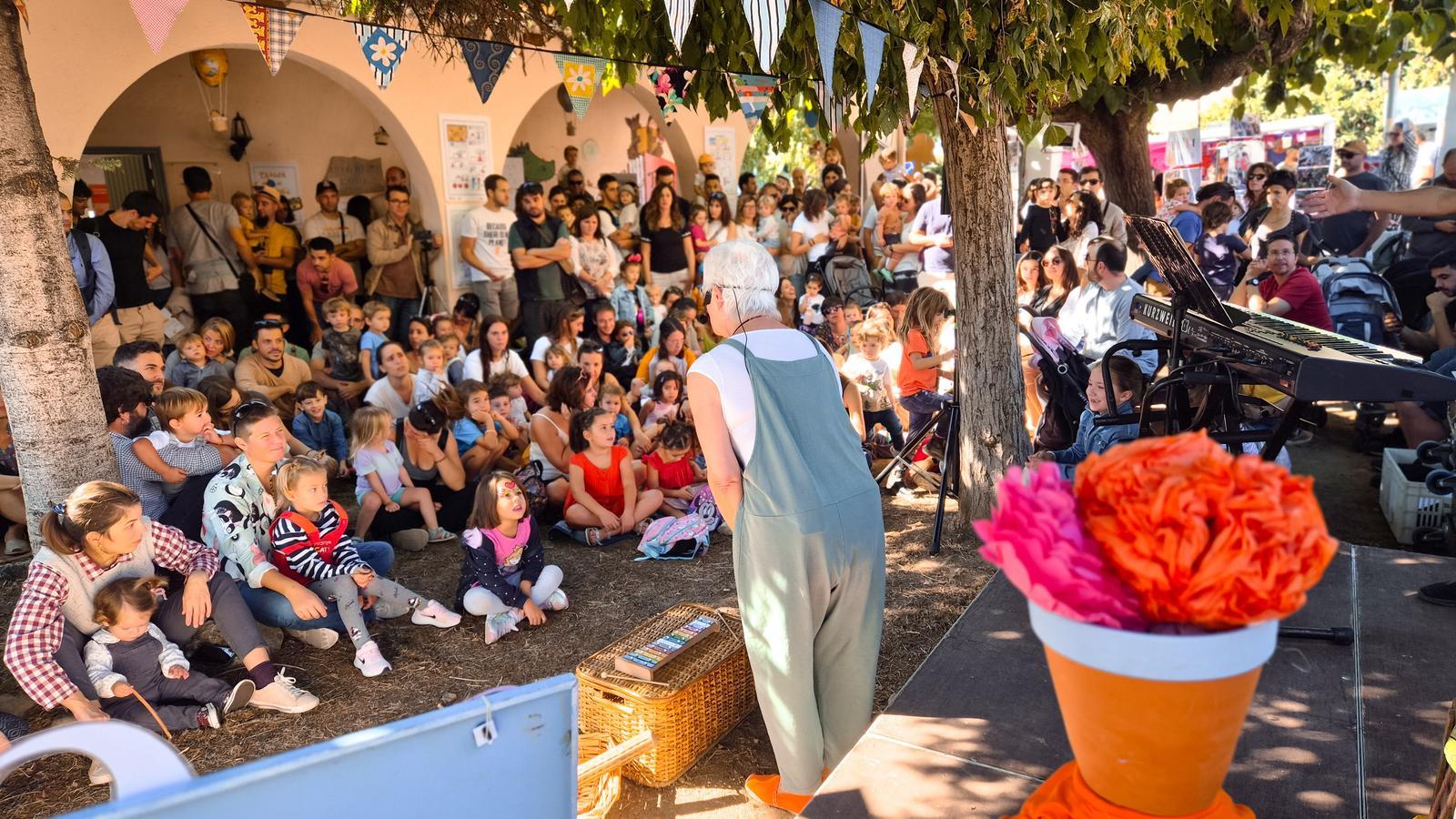In 1862, Danish writer Hans Christian Andersen was in Medinyà when he was caught in heavy downpours while en route to Barcelona. The stay of the author of The Little Mermaid , The Emperor's New Clothes , and The Princess and the Pea , among others, led to the organization of the Medinyà Storytelling Fair, which will celebrate its fifteenth edition on September 14th. Stories for children, young people, and adults are the central focus of this event, which includes literary performances, presentations, roundtable discussions, exhibitions, and workshops. As every year, an illustrator will be recognized, this time by Ignasi Blanch. In addition, the award for the Fira graphic image competition will be presented, and the new prize for the illustrated children's story competition with the Takatuka publishing house will be presented.
Is it necessary to sugarcoat children's stories?
Medinyà, the town where Danish writer Hans Christian Andersen stayed, is celebrating the 15th edition of the Storytelling Fair.

BarcelonaReading is a journey into an unknown world full of experiences that guide the reader page after page. For children, accompanying them in this reading allows them to open a window to new worlds. "When a child reader receives a message through accompanied reading, they imagine the story through that voice, recreate it, and make it their own. Furthermore, this intervention helps awaken their sense of creativity," observes Margarida Falgàs, a retired teacher, educator, coordinator of children's reading clubs, and member of the Fira organizers.
The importance of good reading accompaniment, with reading aloud and discussing what they've read, is essential for children to also open their eyes to new realities. "We are in favor of shared readings because, starting with a story, you can talk about everything; it's a gateway to all topics," explains Mertxe París, owner of the El Genet Blau bookstore, editor, and storyteller. Her bookstore organizes reading clubs for children of all ages, and she recognizes that young readers always draw different messages and perceive different ideas from the same story. "Having reading support improves their comprehension and makes it easier for them to grasp the messages contained in stories. At the same time, it improves their attention span," she says.
Paris points out that it's key that reading support not only be offered at early ages and recommends that families and educational centers extend it as long as possible. "Let them read alone is good and necessary, but this support can be extended until they say enough. Doing so also strengthens the bond you create with the person you're reading with, which, in addition to being enriching, encourages you to maintain it and read more," she points out.
To sweeten stories or not to sweeten them.
"It's by talking about what we read that linguistic thinking is also structured. Therefore, it's necessary that the readings chosen have linguistic quality, a good vocabulary and a good grammatical structure, and that they tell good stories without being sugarcoated," maintains Falgàs. This last point generates some controversy: should certain stories be softened? Is it necessary to reformulate them so they're not so harsh? "There's a certain tendency to cover some children's stories with cotton wool, to ensure that certain words don't appear, or to watch out for any violent episodes, especially in the case of the classics. Well, I believe that things should be called by their name, and if there's a death in a story, then there's a death," considers París.
"Stories and histories are part of a society, an environment, and a time. Someone would like to read War and Peace or theUlysses sweetened? It's important to know that stories, especially classic ones, speak to us and our society at a given time. That's why we need to interpret and understand them from the bottom up, because they make us talk and question ourselves," says Falgàs. He gives the example of the story of The ugly duckling, by Hans Christian Andersen, which can be used to talk with children about how they feel among equals, but also how they feel when they find themselves among different ones. "We can't just stick with the story of the poor crying duckling!"
Paris agrees on this point, as he believes it is important for young readers to have contact with the classics, always contextualizing them and reviewing them through a critical eye, but always after having read them. "I love the versions; however, to be able to enjoy the many versions there are of Little Red Riding Hood"First, you have to know where Little Red Riding Hood comes from." Paris points out that sometimes books treat children as if they were "stupid readers," even though they may be better prepared than adults when it comes to taking a position on certain situations. "To raise critical children, you have to know what they're critical of. That's why you have to first understand, and then criticize, revise, or make a version. The key is to contextualize and explain; otherwise, we're raising children with little cultural foundation, and that becomes a problem if you want them to become critical people with their own criteria," Paris emphasizes.
